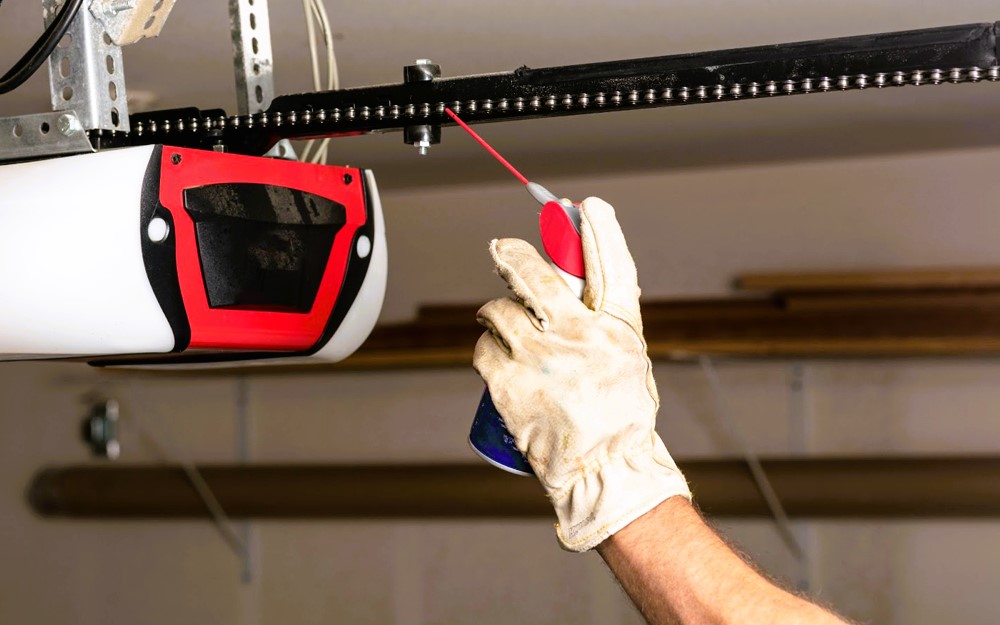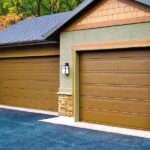A garage door opener is a convenient and essential component of your garage, providing easy access and security for your vehicles and belongings. However, like any mechanical device, garage door openers can encounter problems that may prevent them from functioning correctly. In this article, we will discuss some common issues that can arise with garage door openers and provide troubleshooting steps to help you identify and resolve them.
- Remote Control Failure
If your garage door opener fails to respond to the remote control, the first step is to check the batteries. Replace the batteries with fresh ones and ensure they are properly inserted. If the remote control still doesn’t work, try reprogramming it according to the manufacturer’s instructions. If none of these steps resolve the issue, there may be a problem with the remote control itself, and you may need to replace it.
- Wall Switch Not Working
If the wall switch inside your garage fails to open or close the garage door, there could be a problem with the wiring or the switch itself. Start by checking the wiring connections to ensure they are secure. If the wiring appears to be intact, try replacing the wall switch with a new one. If the problem persists, it may be necessary to consult a professional electrician to diagnose and fix the issue.
- Door Reverses Immediately After Closing
If your garage door starts to close but immediately reverses back up, it could be due to a safety sensor misalignment. Check the alignment of the sensors located near the bottom of the garage door tracks. Ensure that nothing is obstructing the sensors and that they are aligned properly. If the problem persists, clean the sensor lenses with a soft, dry cloth and make any necessary adjustments according to the manufacturer’s instructions.
- Garage Door Opens or Closes Partially
If your garage door opens or closes only partially, it could be a sign of an issue with the travel limit settings. Each garage door opener has travel limit adjustments that control how far the door opens or closes. Consult your owner’s manual to locate these adjustments and make the necessary modifications. Be cautious when making adjustments, as incorrect settings can cause the door to open or close too far, potentially leading to damage or safety hazards. The choice of a garage installation company, we painted all the nuances.
- Grinding or Squeaking Noises
Unusual noises, such as grinding or squeaking sounds, during the operation of your garage door opener can indicate a lack of lubrication or worn-out parts. Apply a lubricant specifically designed for garage door openers to the hinges, rollers, and other moving parts. If the noises persist, it may be necessary to inspect and replace any worn-out or damaged components.

- Motor Runs but Door Doesn’t Move
If you hear the motor running but the garage door doesn’t move, it could be due to a broken or worn-out drive belt or chain. Visually inspect the drive belt or chain for any signs of damage or excessive wear. If necessary, replace the belt or chain according to the manufacturer’s instructions. It is recommended to consult a professional technician for belt or chain replacements, as they require precise adjustments to ensure proper operation.
- No Power to the Opener
If your garage door opener doesn’t receive power, check the power source. Ensure that the power cord is securely plugged into a functioning outlet. If the outlet is working but the opener still doesn’t receive power, there may be a problem with the internal wiring or circuit board. In such cases, it is best to contact a professional garage door technician to diagnose and fix the electrical issue.
- Erratic Operation
If your garage door opener operates erratically, opening or closing at random times or stopping unexpectedly, it could be due to interference from nearby devices or poor signal reception. Check for any electronic devices or wireless transmitters in the vicinity of the garage door opener and relocate or remove them if necessary. Additionally, check the antenna on the opener unit and ensure it is properly extended for optimal signal reception.
In conclusion, troubleshooting problems with your garage door opener can help you identify and resolve common issues. However, it is important to exercise caution and prioritize safety when working with garage door opener mechanisms. If you are unsure about any troubleshooting steps or if the problem persists, it is always recommended to consult a professional garage door technician who can provide expert assistance in diagnosing and repairing the issue.


